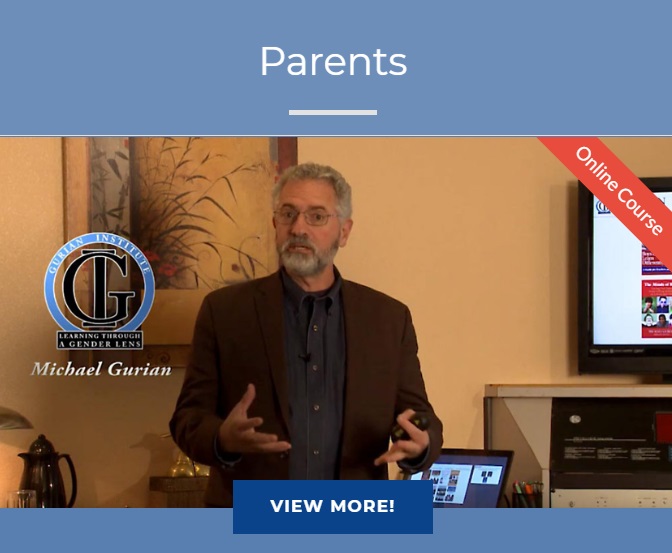
In Santa Fe, Texas, there has been another school shooting. A 17-year-old boy opened fire on classmates and teachers, killing 10 and injuring 10 more. He carefully planned out his crime and journaled it in his cellphone and computer. His Facebook and Instagram accounts, taken down immediately upon the shooting, showed visits to sites like “sickguns” and gunspictures.”
In Phoenix, Arizona, a young girl committed suicide after being bullied and harassed by other girls. In her devices and computer were signs of her depression, but many of these did not appear until family and mentors explored her devices after her death. After her passing, too, her journal on her computer showed just how depressed, anxious, and fatalistic she had become.
The minds of both boys and girls are facing a crisis of emotional distress. Among similar countries, this is especially true in the U.S. Our homicide rates per capita are the highest; we use a disproportionate amount of mental health drugs here on our children; girls’ anxiety and depression rates are skyrocketing among children and teens, and even children as young as 6 are becoming violent and experiencing the hidden trauma of mind-bending loneliness.
For thirty years, I’ve studied these trends and joined numerous colleagues in calling for a science-based approach to them. Whether our interest is saving lives, raising healthy children, helping students and teachers succeed in schools, increasing girls in STEM professions, helping boys find a purpose in life and a job that can sustain them and their offspring—whatever the issue, supporting the development of healthy minds in boys and girls is critical.
For the same thirty years I’ve heard people say, “The ‘boys’ and ‘girls’ part isn’t necessary—let’s just focus on ‘children.’ Some people argue sociologically that there is no ‘girl’ or ‘boy’ anyway, so it is not important to see life, love, fear, sadness, and even death through the eyes of females and males.
These folks are wrong. We cannot treat female depression without treating the girl nor male depression without treating the boy. Sex and gender are elemental in the human mind—to try to forget how sex and gender affect life, love, fear, sadness, and death is like trying to fly into space without a rocket ship to make your successful trip possible in the first place. The X and Y chromosomes control a great deal of who we are. Even a transgender and gay brain shows traits of male and female brains.
In my two-part keynote presentation at our Summer Institute, I will explore the amazing minds of boys and girls. We’ll look carefully at how they learn and grow, including brain differences that impact education, trauma-response, and social emotional development throughout the lifespan.
We will explore headlines about murder and suicide from the sex and gender lens, including asking participants to talk in their communities about how parents and loved ones can keep tabs on children’s computers, phones, and social media better than we do. Even if clues to child depression and violence don’t show up at school until it’s too late, they nearly always appear in children’s private devices.
Should those devices be private? Not if we even feel a whiff of possible depression in our child. We need to treat mental health issues at their beginning rather than after the children are gone.
We’ll look at the importance of the new genetic resources available to schools and families, including an epidemiological approach to distress in our children. We’ll explore the impact of environmental and cultural neuro-toxins on the learning brain, and best teaching, parenting, counseling, and mentoring practices for girls and boys.
My presentation will include PET, SPECT, and MRI scans that display brain differences experientially, and we’ll look at the latest research SAVING OUR SONS (2017) and THE MINDS OF GIRLS (2018). In Part I of my keynote, we’ll focus on educating, raising, and counseling boys; in Part II, on educating, raising, and counseling girls.
Is “toxic masculinity” the cause of male violence? We’ll answer that question.
Does the existence of transgender individuals and the gender fluidity movement negate male/female brain difference? We’ll look at science that answers that question in the negative.
How can we end girl drama and relational aggression? We’ll discuss that question in a way you might not have thought of before.
How can we improve girls’ STEM learning? I’ll provide specific strategies for working in and with the female brain from birth onward.
Can we improve boys’ falling grades, test scores, college graduation, and general well-being? Our answers will be practical and emotionally powerful.
With 23 lethal school shootings occurring already this year as I write this blog post (May 20), it is crucial we come together to understand what makes boys do these things, and how we can reconstruct our society and neighborhoods so that we can save our children.
With female depression and anxiety becoming so devastating especially in the U.S. and the post-industrial world, it is crucial we come together to understand why this is happening in girls, and how we can turn this trend around—we will build a better society and save lives.
I hope you’ll join me and our whole team at our Summer Institute. To learn more and to register, click: https://gurianinstitute.com/gurian-summer-institute-2018/. If you can’t come and to learn more about our year-round programs for helping schools and communities, visit www.gurianinstitute.com.
A preview of many of the themes in my keynotes appear in Saving Our Sons and The Minds of Girls, new books available through your local bookstores or online outlets like amazon.com.
Two recent blogs on our website that explore themes important to helping boys and girls are these:
https://gurianinstitute.com/boys-violent-crisis-nation-must-invest-helping-boys-thrive/
https://gurianinstitute.com/lets-use-hard-science-to-help-tech-companies-advance-women/
Our Articles of the Week this week feature two relevant podcasts:
http://www.blogtalkradio.com/mentalhealthnews/2018/01/22/the-minds-of-girls-with-dr-michael-gurian
Another source of podcasts on these topics is: Patreon.com (Search: Michael Gurian). This is our Membership service in which some of the podcasts are free and there are many more available for a $10.00 per month fee.
Thank you for caring about the minds of boys and girls. We have much work to do together and that work is often difficult, a journey against cultural headwinds that avoid brain science and common sense, but we are doing the work and will keep doing it. After thirty years of fighting this battle in our culture, I have no doubt we will prevail.









